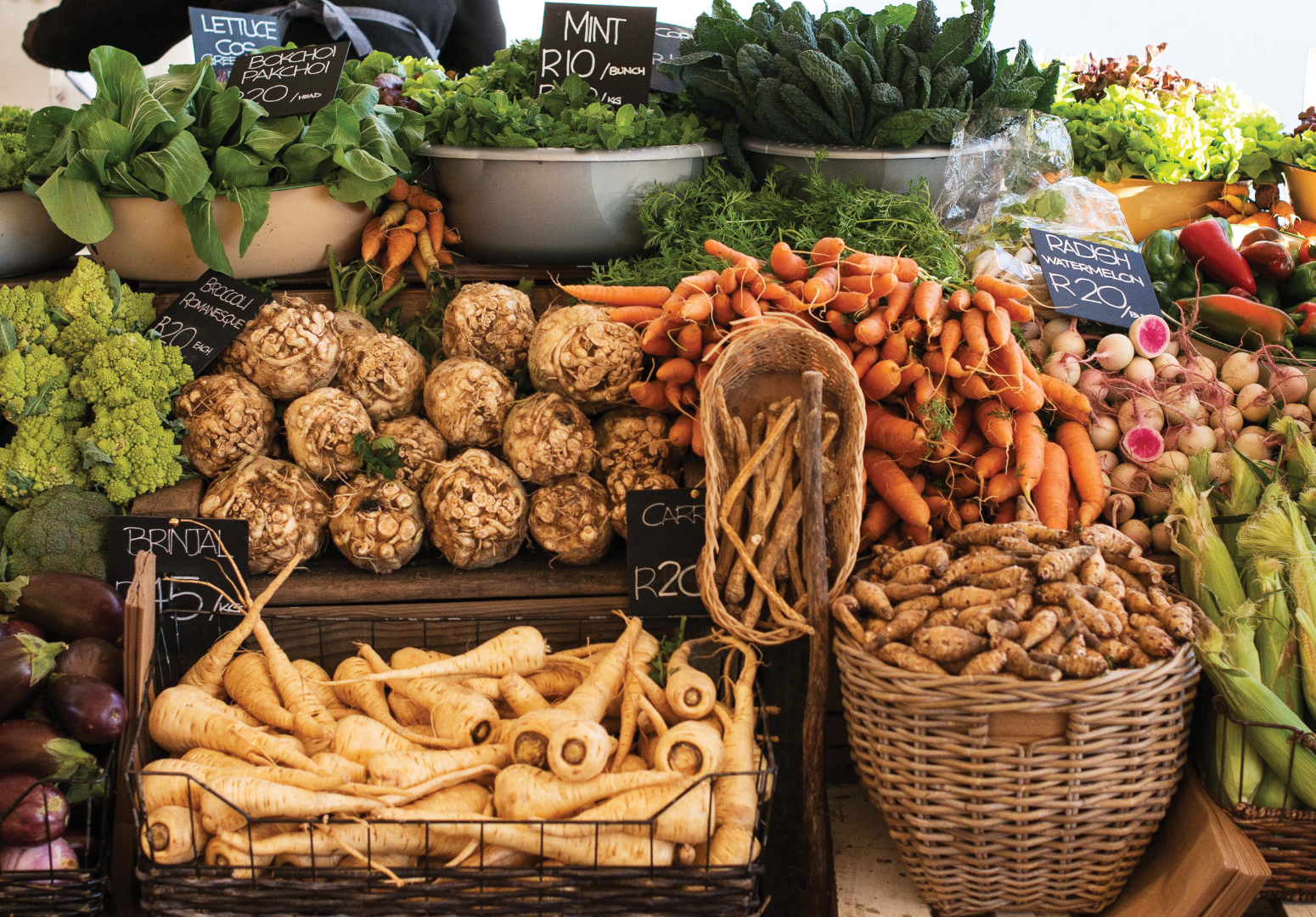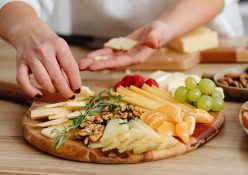Sheryl Ozinsky, co-founder of Cape Town’s Oranjezicht City farm and Market, lets us in behind the scenes.
For anyone who hasn’t been there before, can you explain the concept of Oranjezicht city farm (OZCF)?
We recognise that an increasing number of people are trying to understand more about the food they buy and eat, and the connection to health and wellness. For some, it’s a reaction against the negative environmental impacts of industrialised commercial agriculture; for others, a chance to reconnect with nature and their neighbours, spend time as a family or just chill with friends. But we have taken one more step on the journey, and important issues – urban greening, food security, resource use, waste reduction and diversion – are being raised and addressed.
Our educational programmes have engaged local and regional schools in helping to develop tomorrow’s leaders. Indigenous culinary plants are being re-introduced for cultivation in local gardens, jobs have been created and a local food system is being encouraged.
The atomisation that characterises more affluent urban communities in Cape Town is slowly being changed in Oranjezicht to cohesiveness. The market started off as a way to pay for the upkeep of the farm, but now some 60 traders sell everything from custard apples, dragon fruit and Brussels sprouts to fresh oysters, almond milk and kimchi. There’s also tons of great snacks and meals to be had, with new stalls opening all the time. Besides all the great produce, crusty loaves and fresh-pressed juices under the tents, there are tables and benches from which you can watch the stream of people or ponder the Atlantic backdrop. The coffee is great and the right kind of music always seems to be playing in the background. What more could you ask for?

How did the idea for this market come about?
I helped to start a neighbourhood watch in Oranjezicht. That led to the renewal of an abandoned park on the site of an old farm, established in the 1700s, that once spanned 350 acres. This then led to the conversion of the adjacent bowling green to a working community farm.
The Saturday Market Day started out as a way to keep the farm going and it soon became a neighbourhood hub. Working on a heritage site had bureaucratic challenges though, and when a market tent pulled down a 300-year-old wall, things got tricky. Just as it seemed that the market might become history, Twitter intervened: a local resident tweeted Helen Zille, Premier of the Western Cape. By the next day, Zille had offered the beautiful grounds of Leeuwenhof, her official residence not far from the garden, to use as a market space. It quickly became known as ‘the Market at Zille’s Villa’. With the added attraction of the premier’s swimming pool being made open to the public, the market became somewhat of an urban phenomenon.
A few months later, as the Cape winter began (meaning rain, sunshine, rain, rain, sunshine…), the ground became too wet to comfortably house the market. By then, the market had found its legs, and Cape Town’s V&A Waterfront offered OZCF Market Day a space overlooking the Atlantic. Now, the market has a sea view and – for the first time – parking is a pleasure.
What is your favourite part of the market?
I love it all, but Manon and Andreas’ Plant Nursery has a special place for me.

Would you explain the Bokashi Brigade?
You can bring your kitchen waste, layered with Bokashi (a kind of bran specially inoculated with microorganisms that turn organic waste into compost) to the farm so we can use it to feed the soil. You just throw your kitchen waste into the bucket, sprinkle a bit of Bokashi on top (available from the farm or its online shop), put the lid back on the bucket and when it is full, bring it to the farm and we’ll give you an empty bucket in exchange. Don’t send your organic waste to landfill sites – it causes damage to the Earth’s atmosphere.
Can volunteers get involved in the farm?
Yes, indeed, in so many ways – from working on the farm to helping with educational programmes.
What do you hope for the future of the farm and market?
Cape Town needs a regular fresh produce, meat and fish market, operating seven days a week, like in many of the top cities in the world.
Words: Robyn Lane | Photography: Courtesy Images







